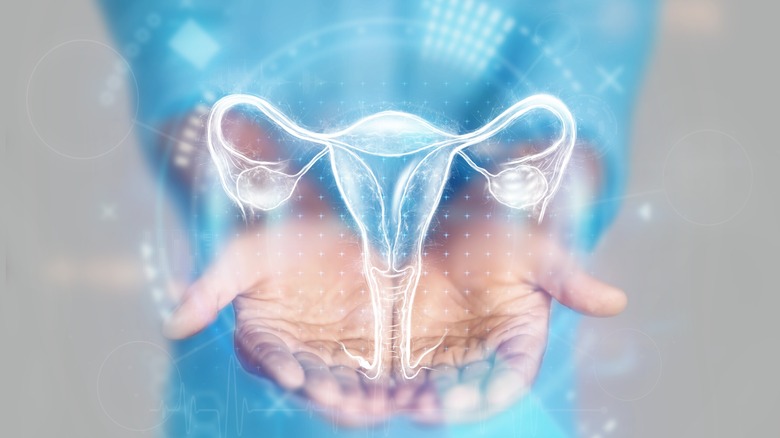What Does OB/GYN Stand For?
A professional that specializes in women's health is called an OB-GYN (via Medical News Today). There's much to delve into regarding this profession, including what the letters stand for and what the role entails. It is, however, best to first understand women's health in general. As explained by MedlinePlus, women's health is the branch of medicine that deals with women's physical and emotional well-being. It encompasses a wide range of areas, with the two most critical being reproductive and sexual health.
Reproductive health isn't simply about the absence of disease, according to the World Health Organization. Rather, it's a state of complete mental, social and physical well-being in all matters relating to the processes and functions of the reproductive system. Likewise, sexual health, as a state of well-being, allows every woman to enjoy and participate fully in sexual activity, explains Harvard Health Publishing. An OB-GYN, in these cases, is the best doctor to care for women's sexual and reproductive health.
The meaning behind OB/GYN
An OB-GYN, also known as an obstetrician-gynecologist, is a doctor specializing in obstetrics and gynecology, according to Medical News Today. Obstetrics, for one, involves working with pregnancy and delivering babies. Gynecology, on the other hand, treats a wide range of conditions affecting the female reproductive system. This includes sexually transmitted infections (STDs) and chronic pain.
A typical OB-GYN will deal with many critical health issues in a woman's life outside childbirth and pregnancy, such as birth control, menopause, screening for cancer, and performing any pelvic or urinary tract-related surgeries, according to WebMD.
Just as obstetrics and gynecology are medical specializations, they too can specialize even further. In fact, according to Healthline, around 90% of OB-GYNs work as generalists across various services. Others specialize further, focusing on one or more different areas. At times, OB-GYNs might even offer their specialized services through private practice or as part of a larger hospital or medical group.
Specialty areas of an OB/GYN
While some choose to focus only on obstetrics and care for pregnant women, others only offer gynecological care without delivering any babies, according to Medical News Today. We expand on some specializations an OB-GYN might consider, many of which will require additional training, accreditation, and expertise.
A gynecologic oncologist, for one, is a doctor who treats cancer of the reproductive organs, such as cervical and ovarian cancer. Maternal-fetal medicine, on the other hand, handles high-risk pregnancies and their related medical conditions (per Healthline). You might need to see a maternal-fetal medicine specialist if you have premature labor, gestational diabetes, or blood-clotting disorders.
Another specialist known as reproductive endocrinologists diagnoses and treats endocrine disorders, like endometriosis, irregular periods, and fertility (via WebMD). They can also recognize infertility issues and develop effective treatment plans, such as in vitro fertilization (IVF) procedures. Lastly, pelvic medicine and reproductive surgeons are known to treat urinary tract disorders (via Healthline). They focus on issues of the connective tissue and muscles located beneath a woman's pelvis, an area known popularly as the pelvic floor.



